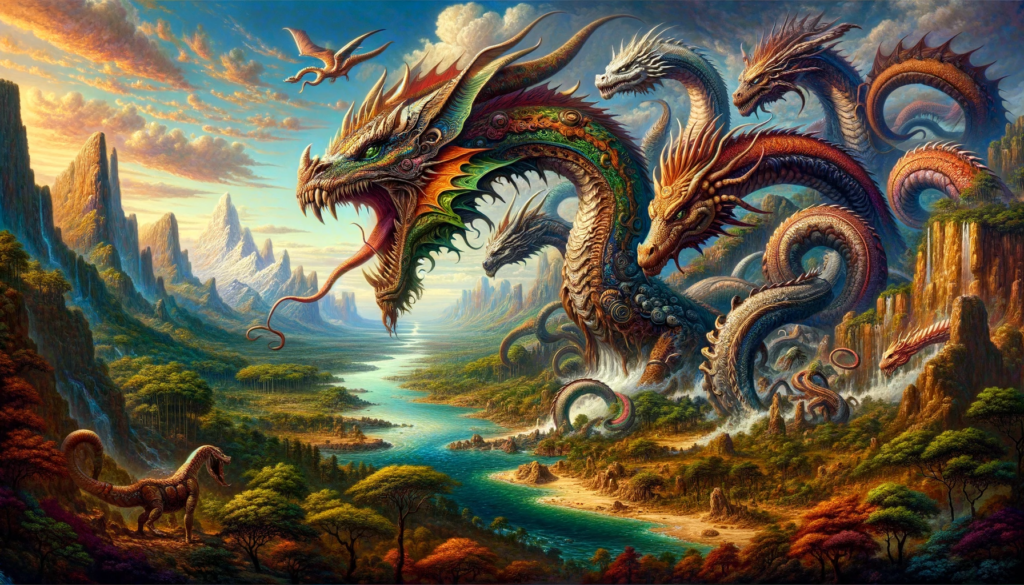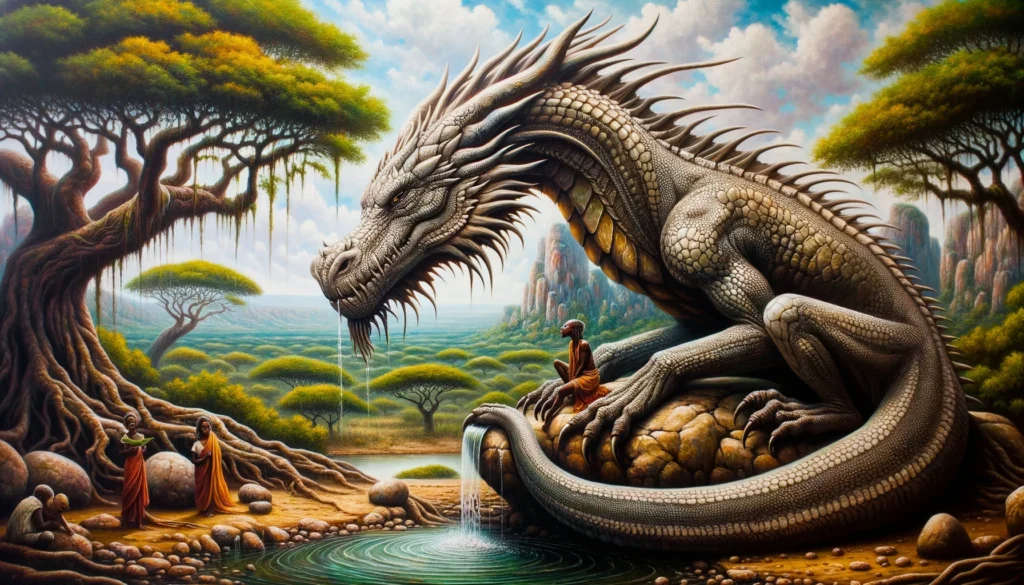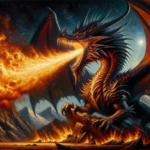The African Dragon – an Introduction
Dragons have long been the stuff of legends and myths across cultures worldwide. From the fire-breathing behemoths of Western folklore to the benevolent and wise Eastern dragons, these mythical creatures have captured our imagination for centuries. However, one lesser-known dragon, steeped in the rich tapestry of African folklore, deserves our attention: the African Dragon. In this article, we will delve into the enigmatic world of African dragons, exploring their diverse forms and the role they play in the continent’s mythology.
Diverse Forms of The African Dragon
One of the most fascinating aspects of African dragons is their incredible diversity. Unlike the common Western perception of dragons as large, scaly creatures with wings, African dragons come in various shapes and sizes, reflecting the continent’s rich cultural mosaic. Let’s explore a few notable examples:
- Serpent-Like Dragons: In many African cultures, dragons take the form of long, serpentine creatures, resembling giant snakes. These creatures are often associated with bodies of water, rivers, and lakes. For instance, in the Igbo mythology of Nigeria, the “Ọgbanje” is a serpent-like dragon spirit known for its mischievous and capricious nature.
- Crocodile Dragons: Along the Nile River, particularly in ancient Egyptian mythology, crocodiles were seen as dragons. These creatures were revered and feared for their power and ferocity, often associated with the god Sobek.
- Shape-Shifters: Some African dragons are believed to possess the ability to shape-shift into human form, blurring the line between myth and reality. These shape-shifters are often seen as powerful beings, sometimes with the capacity to bring both blessings and curses.

Cultural Significance
African dragons play a significant role in the continent’s mythology, often embodying a blend of fear and respect. Here are a few examples of their cultural significance:
- Guardians of Nature: In many African cultures, dragons are seen as protectors of the environment. They are believed to watch over bodies of water, forests, and mountains, and their presence is considered essential for maintaining the balance of nature.
- Moral Lessons: African dragon myths often contain moral lessons for the people. Stories about these creatures often emphasise the consequences of greed, betrayal, or arrogance. They serve as cautionary tales, teaching valuable life lessons.
- Rituals and Ceremonies: These dragons are sometimes invoked in rituals and ceremonies. These rituals are performed to seek protection, guidance, or blessings from these mythical beings. For instance, in the Mami Wata tradition, a water spirit associated with serpents is venerated through various ceremonies.
The African Dragon – a Conclusion
The African Dragon, though less well-known on the global stage, is a fascinating and diverse creature woven deeply into the tapestry of African mythology. Unlike the standardised image of dragons in Western tales, African dragons come in various forms and play diverse roles in the cultures they inhabit. They are both feared and revered, serving as guardians of nature, bearers of moral lessons, and subjects of mystical rituals.
As we explore the rich and intricate world of African dragons, we are reminded of the profound connections between mythology, culture, and the natural world. These mythical beings continue to be a source of wonder and intrigue, beckoning us to delve deeper into the intricate narratives of Africa’s diverse and vibrant cultures.
For more great Dragon content please subscribe to our YouTube Channel or follow the Everything Dragon Instagram




